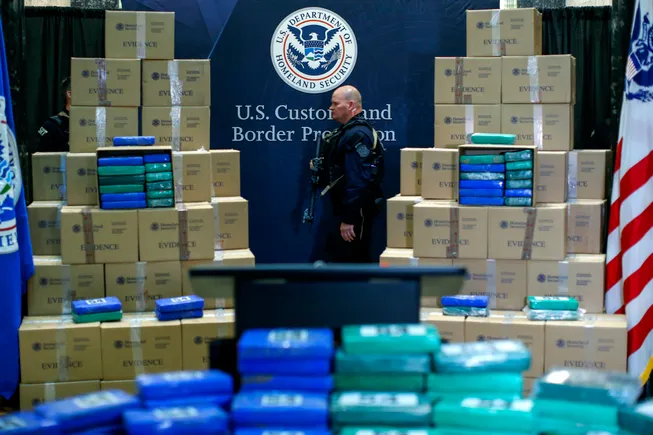The White House announced on Wednesday that the U.S. de minimis exemption will no longer apply to products from China and Hong Kong starting next month, with plans to eliminate the exemption for other countries in the near future. Imported goods from China and Hong Kong that previously qualified for the exemption will now be subject to all applicable duties, unless they entered the U.S. through the international postal network. For items entering via the postal system, a duty rate of either 30% of their value or $25 per item will apply, with the $25 charge increasing to $50 per item after June 1. U.S. Customs and Border Protection may require these packages to go through formal entry procedures, subjecting them to all applicable duties, taxes, and fees.
Furthermore, the de minimis exemption will be eliminated for imports from countries subject to U.S. tariffs once adequate systems are in place to process and collect duty revenue efficiently. However, the exemption will still apply to eligible items brought during travel and gifts. The de minimis exemption, which allows sub-$800 packages to enter the U.S. duty-free, has been beneficial for companies like Shein and Temu, enabling them to reduce shipping costs and maintain lean inventory by shipping products directly from Asian factories to consumers. Smaller brands relying on China-to-U.S. delivery or reselling China-based goods have also benefited from this exemption.
Despite its advantages, the de minimis exemption has faced criticism from the Trump administration, lawmakers, and U.S. Customs and Border Protection officials due to concerns about contraband entering the country through low-cost packages. The White House highlighted deceptive shipping practices by Chinese shippers exploiting the exemption to hide illicit substances, including synthetic opioids, in low-value packages. Trump’s executive order on reciprocal tariffs aims to expose a variety of low-cost imports from China to additional tariffs imposed by his administration, including a 20% increase in duties on Chinese products and a 34% tariff starting on April 9.
The elimination of the de minimis exemption for China signals a shift in trade policy, impacting shippers who have relied on this exemption to navigate previous policy changes. The reinstatement of the exemption for China-based imports following a brief hiatus in February reflects the administration’s efforts to collect tariff revenue more effectively on impacted shipments. Cindy Allen, CEO of Trade Force Multiplier, highlighted the challenges in implementing effective duty collection systems, particularly for shipments flowing through the postal system.
The U.S. Postal Service temporarily suspended inbound packages from China and Hong Kong during the initial removal of the de minimis exemption, citing difficulties in duty collection as a key factor. The decision to reinstate the exemption for China-based goods was driven by the need to establish a more efficient duty collection system, as other channels already had established processes in place. The Commerce Secretary is expected to submit a report within 90 days of the order evaluating its impact and considering extending the rules to packages from Macau.
In conclusion, the elimination of the de minimis exemption for China and Hong Kong represents a significant policy change with implications for importers, shippers, and consumers. The move reflects the administration’s efforts to address concerns about illicit substances entering the country through low-value packages and to ensure more effective duty collection on imported goods. As the trade landscape continues to evolve, stakeholders will need to adapt to these changes and navigate the shifting regulatory environment to remain compliant and competitive in the global marketplace.




